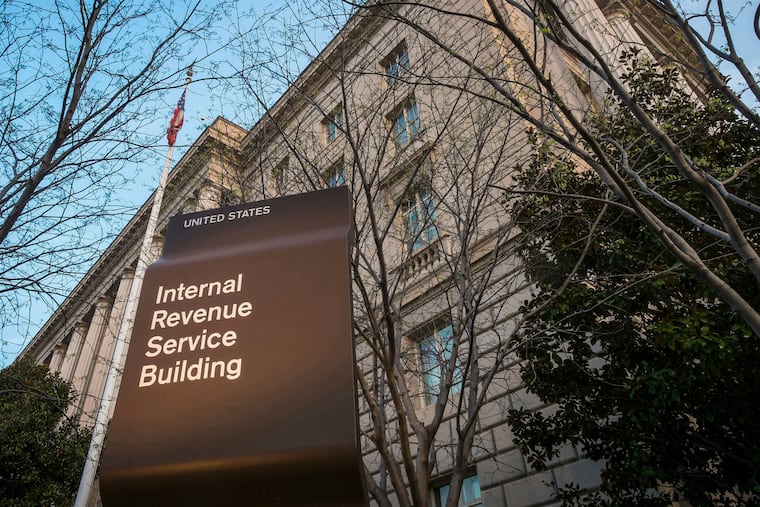Little-known COVID-related tax benefits could save small businesses a bundle this year
Small business owners should check with their accountants to see whether they qualify for significant tax breaks in the CARES Act.

The CARES Act, which was passed last March as a result of the growing coronavirus pandemic, provided substantial funds to millions of small-business owners through its loan programs, as well as payroll tax credits for the most significantly affected employers.
But the legislation, which expires Dec. 31, also included a few lesser-known provisions for small businesses that could — along with some other savvy moves — significantly reduce our federal income tax bills this year.
For starters, there are new and temporary rules about net operating losses, or NOLs. If your business loses money this year, regardless of whether it was pandemic-related, you may be able to get money back from the government faster than you were able to before.
That’s because, up until this year, and due to the 2017 tax law changes, businesses are allowed to apply NOLs only to future years. But the CARES Act will allow businesses to not only carry forward their losses but to now also carry them back for up to five years. What does this mean?
It means that if you made money in the last five years, you can now reduce those prior years' profits with this year’s loss and get money back from the federal government for the taxes you previously paid.
“This is significant for all small businesses this year that might have permanently closed or incurred substantial losses,” said Chris Kourmadas, a partner at Frankford Tax in Philadelphia. “It gives them an opportunity to take any excess losses to carry back to prior more profitable years and seek tax refunds.”
Rosalind Sutch, a partner at Philadelphia-based accounting firm Drucker & Scaccetti, agreed. “This large-scope disaster declaration that occurred in all 50 states opens the door for potentially big refunds this year,” she said.
The CARES Act also expanded the federal deductions that small businesses can take for depreciating assets. It includes new (and again temporary) “bonus” and accelerated depreciation rules for Qualified Improvement Property. This deduction covers improvements made to the interior of commercial real property such as the installation or replacement of drywall, ceilings, interior doors, fire protection, mechanical, electrical, and plumbing. The idea is to provide businesses an incentive to make changes for health and safety purposes and to help them generate cash flow.
“Generally, improvements to commercial property are depreciated over a 39-year period using the straight line method,” Kourmadas said. “But the legislation modified the depreciable life down to 15 years, which greatly reduces the amount of time it takes for a small-business owner to recognize the full amount of expense for their purchased asset.” Kourmadas says that many small businesses may even be able to deduct the full amount of this property in the first year using “bonus” depreciation.
Small-business owners should also pay close attention to research and development expenses because many businesses may qualify this year for a substantial credit related to these costs. To qualify for an R&D credit, a company must develop new (to their organization) or improved processes.
Costs could include in-house research expenses such as any internal wages paid, supplies, or even external contractual services for qualified activities. “As a result of COVID-19, many of our clients had to pivot and create new products or processes to stay afloat,” Sutch says. “For these companies, it’s important to investigate the research and development tax credit and discuss it with their tax advisers.” If applicable, this credit could result in big savings for small businesses in any industry.
Finally, for those business owners who chipped in to help their employees through these difficult times, the government has enabled employers to offer assistance and then get tax relief through what is known as the “Section 139” tax deduction. “Section 139 allows an employer to make tax-free payments to employees for certain COVID-related expenses,” said Anthony Bruce, a tax adviser based in Cherry Hill.
“These deductions could be very important because it’s not only an expense to the business, but they won’t be considered income to the employees.” Qualified relief payments could include assistance with hospitalization, home repairs, or just the payment of reasonable and necessary personal, family, living or funeral expenses that were incurred because of COVID-19.
Regardless of how profitable or unprofitable this year was, few business owners will dispute that taxes consume a significant portion of our take-home income, and any way to save on what’s due to the government could have an enormous impact on our precious cash flow.
Will any or all of these provisions apply to your business? Hopefully so. But the best thing to do is to talk to your tax adviser now, while there are still a couple of months left in the year to do some planning, and take action.
Gene Marks is a certified public accountant and the owner of the Marks Group, a technology and financial management consulting firm in Bala Cynwyd.